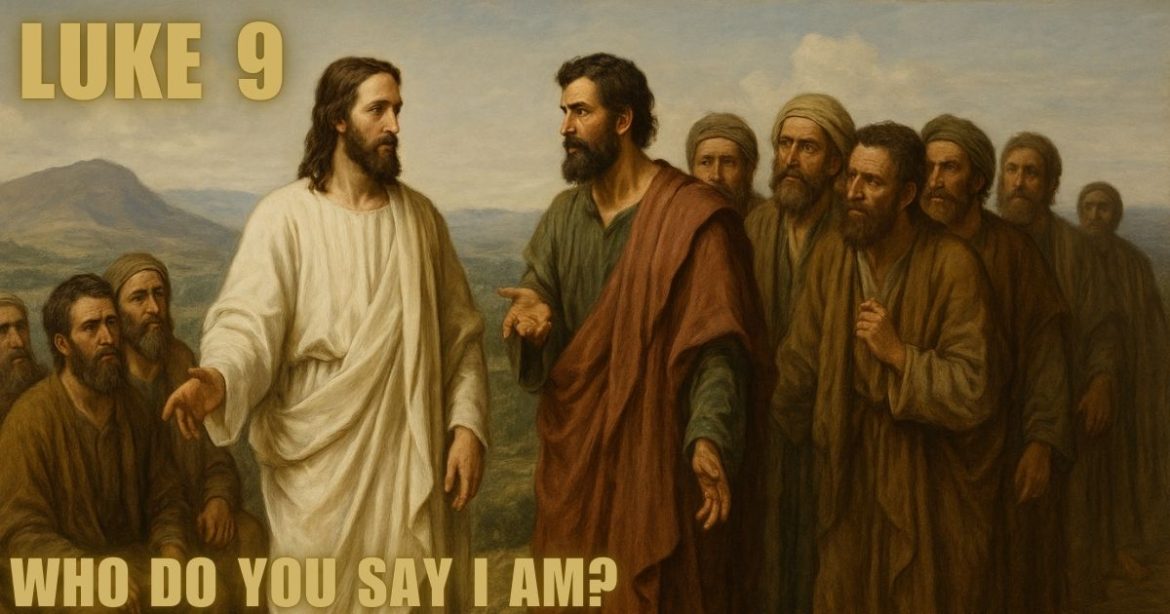In Luke 9, we encounter a pivotal chapter that encapsulates the essence of Jesus’s teachings and the profound challenges of true discipleship. This chapter, dense with theological insights and dramatic narratives, offers a window into the early days of Jesus’s ministry, where he prepares his disciples for the arduous journey of spreading the gospel.
A Call to Radical Dependence
Jesus sends out his disciples with specific instructions: carry no staff, bag, bread, money, or even an extra tunic. This directive was not just about traveling light—it was a profound call to radical dependence on God and the hospitality of others. In a time when itinerant preachers were common, Jesus wanted his followers to distinguish themselves not by the accumulation of goods, but by their reliance on divine provision. This lesson resonates deeply in today’s material-centric culture, urging us to consider what “packing light” might look like in our own spiritual journeys.
Facing Rejection with Grace
As the disciples ventured into diverse towns, they were instructed to shake off the dust from their feet in places that rejected them. This gesture symbolized a serene acceptance of rejection without harboring resentment—a lesson in humility and the transient nature of human approval.
The Feeding of the 5,000: A Miracle of Abundance
One of the most celebrated miracles, the feeding of the 5,000, not only illustrates Jesus’s compassion but also his challenge to the disciples’ faith. Faced with a hungry multitude, the disciples’ instinct was to send the crowd away. Jesus’s response, “You feed them,” underscores a recurring theme: the potential for divine acts through human hands when coupled with faith. This miracle, leaving them with twelve baskets of leftovers, emphasized God’s generosity, providing more than was necessary—an abundance that we are called to believe in and act upon.
The Confession of Peter and the Transfiguration
The chapter reaches a theological climax with Peter’s declaration that Jesus is the Christ, and the subsequent Transfiguration. These events are not just foundational to Christian doctrine but are profound affirmations of Jesus’s divine nature and mission. The Transfiguration, revealing Jesus in divine glory alongside Moses and Elijah, bridges the Old and New Testaments, signaling the fulfillment of the Law and the Prophets in Christ.
Lessons on Leadership and Identity
Amidst these divine revelations, the disciples’ squabbles over who among them was the greatest seems especially jarring. Jesus’s correction, using a child as an example, overturns conventional ideas of greatness and leadership. In God’s kingdom, greatness comes through humility and service, not power or status.
The Cost of Discipleship
Finally, Luke 9 closes with sobering reminders of the cost of following Jesus. The vivid directives to take up one’s cross daily and to leave familial and material comforts behind are stark illustrations of the sacrifices required in the pursuit of spiritual fulfillment and service.
Reflecting on Luke 9 Today
Luke 9 challenges modern readers to reflect on our own spiritual commitments. Are we prepared to embrace a life of simplicity, servitude, and sacrifice as Jesus demands? The chapter not only compels us to reassess our priorities and commitments but also reassures us of the divine presence and provision in our journey towards spiritual maturity.
This exploration of Luke 9 reminds us that each step in faith is a move towards understanding the profound simplicity of following Christ: it is not without its challenges, but it is rich with divine presence and eternal promises.

